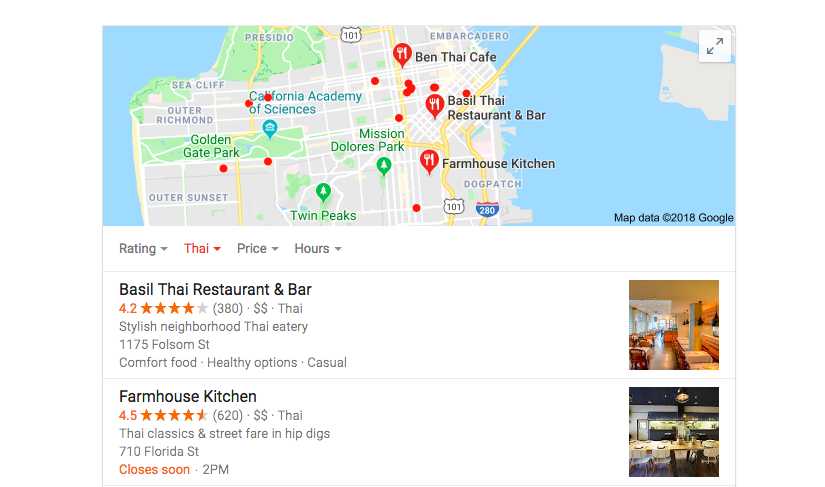If you use Google regularly (and who doesn’t) you’ve likely noticed how they’ve started taking search results into their own hands. If you ask Google a question, a box pops up with the answer, then there’s a list of sites. Looking for a flight? Google sends you to their flight data. Trying to find a local restaurant? Google will give you their info about it, plus reviews and a map view. Same thing for jobs, hotel deals, and more.
While this can be helpful for users, it’s very frustrating for businesses and marketers. If Google is going to share their own results above the business-owners, how can you get clicks to those websites? Across the board, Google is making it harder for businesses to push their own websites to the top of the search results.
This decline in organic SERPs has been slow, but likely will continue as Google builds out their various commercial offerings. So how do you combat this? There are a few ways you can keep optimizing your site and rank where its possible to do so.
1. Build Demand for Your Brand
Google might have control over who they list as a “San Francisco Thai restaurant.” But if users as searching for your restaurant name, Google has no choice but to serve them your website. This might sound like a catch 22- in order to rank and get customers you need to already have customers. But you can make sure your website is ranking for your brand name, including blogs, email marketing, link-building, and your social media sites.
2. Optimize for Other Platforms
Remember people aren’t only searching on Google. They’re looking for content on Google Images, YouTube, Yelp, and all the social networking sites. Make sure you’re creating content on all those sites, and that it is optimized to feature your brand, keywords, and website. There are other places to build traffic that aren’t just regular Google results.
3. Optimize Your Google Results
If you’re a local business, Google is going to first serve their business page for you in the results. Instead of mourning the loss of traffic to your site, optimize these results. Log in to Google My Business, or create an account and claim the page if you haven’t already. Answer questions, update your bio, and make sure all the other information is correct. Don’t forget to add photos and videos!
Remember that this is not the same as Google +, which Google is starting to phase out. Instead, use Google My Business to post updates, including deals, holiday hours, and new products or specials. Take advantage of the opportunity to update this information and feed it directly to potential customers, without having to deal with your website. Just because users aren’t going to your website doesn’t mean they aren’t visiting your business.
Have you noticed a decline in organic traffic to your site since Google started making these changes? You aren’t alone, and it doesn’t mean your SEO is all for nothing. With the right strategy, you can still get traffic to your site and to your business. If you need any help, don’t hesitate to contact us for an SEO strategy.
